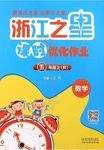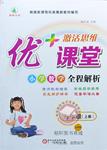题目内容
【题目】假定英语课上老师要求同桌之间交换修改作文,请你修改你同桌写的作文。作文中共有10处语言错误,每句中最多有两处。每处错误仅涉及一个单词的增加、删除或修改。
增加:在缺词处加一个漏词符号(),并在其下面写上该加的词。
删除:把多余的词用斜线(\)划掉。
修改:在错的词下划一横线,并在该词下面写上修改后的词。
注意:1. 每处错误及修改均仅限一词;
2. 只允许修改10处,多者(从11处起)不计分。
Many of us are familiar to the World Cup, a football competition which is popular among people in almost all nation. Do you know there is another football competition that was well known worldwide? It’s calling the Super Bowl and is held every January in the USA. It is very different from the football we know. However, the more you know about them, the well you will like it. Each year the Super Bowl is played in different American city. This is of great important because it helps make sure that the game is fair. Now the Super Bowl is broadcast on TV all over the world. But if you want to see the Super Bowl lively, you had better to have a lot of money, since the ticket for the game is pretty expensive.
【答案】
【1】to→with
【2】nation→nations
【3】was→is
【4】calling→called
【5】them→it
【6】well→better
【7】在in和different之间加a
【8】important→importance
【9】lively→live
【10】去掉had better后面的to
【解析】
试题分析:本文介绍在美国流行的另一种“足球”比赛——超级碗。
【1】to→with 固定词组:be familiar sth./sb.对……熟悉;be familiar to为……所熟悉。故把to 改为with。
【2】nation→nations 前面有all修饰,故nation用复数,表示“在几乎所有的国家”。故把nation改为nations。
【3】was→is 根据句意可知,此处讲的是普遍情况,用一般现在时态,故把was改为is。
【4】calling→called 表示“被称作……”。用被动语态,故把calling改为called。
【5】them→it 此处指代前面的the Super Bowl,故把them改为it。
【6】well→better the+比较级,the+比较级,表示“越……,越……”。故把well改为better。
【7】在in和different之间加a 考查冠词。句意:在一个不同的美国城市。故在in和different之间加a。
【8】important→importance 形容词修饰名词,故把important改为importance。
【9】lively→live 此处指“现场直播”。live“实况转播的,生动的”。故把lively改为live。
【10】去掉had better后面的to had better do sth.“最好做某事”,故去掉had better后面的to。
【知识拓展】
1.important重要的(形容词)----importance重要性(名词);valuable有价值的(形容词)----value价值(名词);patient耐心的(形容词)---patience耐心(名词)
2. 知识讲解lively, alive, living, live的区别
(1)alive是表语形容词,作“活着的”,“在世的”解,它既可以修饰人也可以修饰物。如:
They were alive and as happy as ever.他们都还活着,并且跟以前一样快活。
The tiger is still alive.那只老虎仍然活着。
(2)alive作定语时,应将其放在被修饰的名词后面。如:
All the other comrades were killed in the battle. He was the only man alive.所有的同志都阵亡了,他是惟一的幸存者。
(3)有时alive可用用作主语的补语。如:
The fish were caught alive.这些鱼被活捉。
(4)living意为“活着的”,主要用作定语,常置于名词之前,有时也可置于名词之后。也可用作表语。如:
Every living person has a name.每一个活着的人都有一个名字。
No man living could do better.当代人没有一个能活得比这更好。(当代无人可比)。
Is Mrs. Smith still living?史密斯太太还在世吗?
(5)the living表示“活着的人”。如:
The living are more important to us than the dead.对我们来说活着的人比死了的人更重要。
(6)live读作[laiv ],意为“活着的”,可以作定语,放在所修饰的名词之前,一般不用来修饰人。如:
The cat was playing with a live mouse.为只猫在玩弄一只活老鼠。
(7)live还可以作“现场播出的”解。如:
It’ll be the biggest live concert the world has ever seen.那(场音乐会)将是全世界(的人曾经见过的)最大的一场现场直播音乐会。
(8)live还可用作动词,读作[liv],意为“生活”、“生存”。如:
Pandas usually live in the south and the southeast of China.熊猫通常生活在中国的南部和东南部。
(9)lively(读作[laivi],意为“生动的”、“活泼的”,“充满生气的”,用作表语或定语,可以用来修饰人或物。如:
lively(读作[laivli]),意为“生动的”,“活泼的”,“充满生气的”,用作表语或定语,可以用来修饰人或物。如:
The sports ground is lively with all sorts of ball games.
运动场上要进行各种球类比赛,呈现出一派生气勃勃的景象。
The boy has a lively mind.这男孩头脑灵活。

 浙江之星课时优化作业系列答案
浙江之星课时优化作业系列答案 激活思维优加课堂系列答案
激活思维优加课堂系列答案